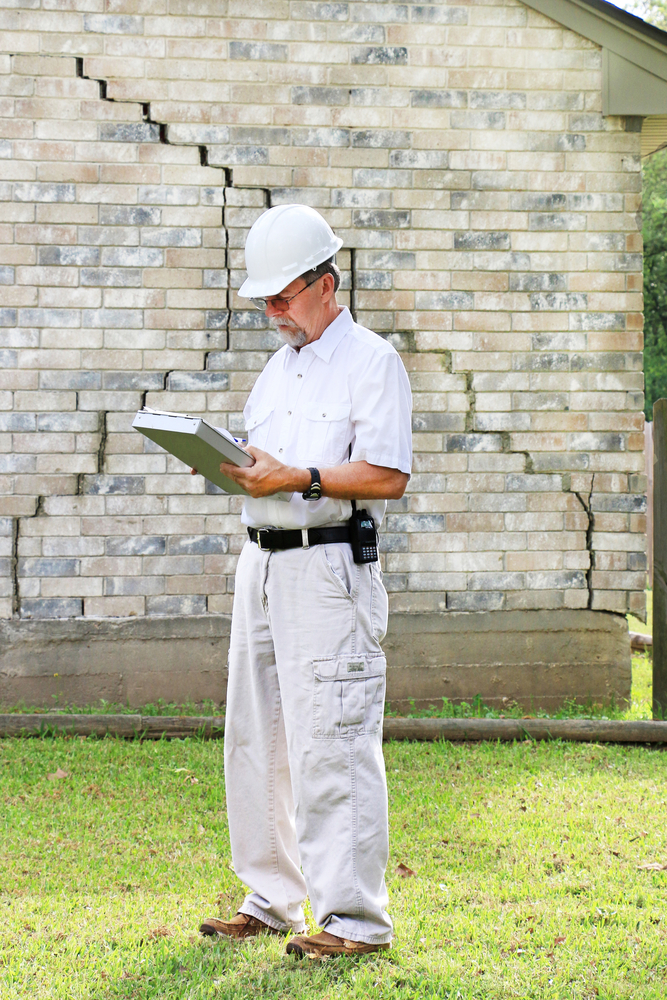
Whether you were born and raised in Florida or have come to the region seeking warm weather and lush landscapes, buying a home in Central Florida can be a challenging task, with today’s tight competition and limited housing stock. If you’re a first-time home buyer, the stakes can seem even higher.
Understanding the steps involved in purchasing a home, from setting a budget to transferring the deed, can help you get a firmer footing in the process, feeling better equipped to take it on. In this post, we’ll help you do just that, laying out the key parts of the home-buying process, as well as crucial ways your Central Florida realtor can help you navigate them.
1. Assess Your Financial Goals and Build a Plan
Before you even begin picking out paint colors, you should take a moment to assess your current financial health and long-term plans to develop a home-buying strategy that aligns with your wishes, needs, and budget.
Key considerations to think about:

-
- Current housing budget: How much do you currently pay for housing? How much wiggle room do you have in your budget?
- Available funds: How much money do you have available for a down payment and closing costs?
- Financial planning: Are you setting aside enough money for other savings goals, including retirement and rainy-day funds?
- Property requirements: What are your housing needs today? Where do you see yourself in a few years? How does a house fit into this picture.
- Credit impact: What is your credit score? Do you have time to take steps to improve it?
The answers to these questions can help create a firmer picture of the budget for your new home. However, there are a few metrics that you can lean on that can help give you a better understanding of what you can afford—in the eyes of your lender.
DTI Ratio
Lenders use DTI to assess your ability to manage monthly payments and repay debts. Depending on the lender and the type of mortgage loan you get, your maximum DTI (including your mortgage payment) usually can’t be more than 36% to 45%, which is how DTI can cap the amount of mortgage you qualify for.
When calculating DTI, lenders look at:
-
- New Mortgage Payments
- Car Loans
- Student Loans
- Credit Card Payments (the minimum required payments on credit card balances)
- Personal Loans
- Child Support or Alimony
- Other Debts (like medical bills or retail installment contracts)

To qualify for a larger loan, it may be useful to pay off current debts with lower balances to lower your DTI.
Saving for a Down Payment
In fact, many loans that cater to first-time and low- to moderate-income buyers have much lower down payment requirements. And even conventional mortgages have some flexibility. Let’s take a look at some common minimum down payment requirements:

-
-
- Conventional Mortgages: Down payments of 3-10% may be possible, depending on credit score and other factors.
- USDA Rural Development Loan: For low- to moderate-income homebuyers in certain low-population areas. No down payment requirement.
- VA Loan: For select active and retired service people and their spouses. No down payment requirement.
- FHA Loan: 3% or 10%, depending on your credit score.
-
For example, the Florida Housing Homebuyer Program offers 30-year fixed-rate first mortgage loans to first-time homebuyers through participating lenders. The program also provides down payment and closing cost assistance through various second mortgage options, including the Florida Assist and the Florida Homeownership Loan Program. Special programs, like the Hometown Heroes Housing Program, are also available for frontline community workers. Check with your lender and real estate agent to learn more about what Florida first-time homebuyer programs may be available to you.
2. Find a Trusted Local Realtor
Why is it important to work with an experienced local realtor?
-
- Market Knowledge: Local agents will have in-depth knowledge of the regional market, including pricing trends, neighborhood insights, and community homebuying programs.
- Networking and Local Resources: Local agents will also have connections with other trusted professionals like inspectors, lenders, and contractors, which can simplify the process of homebuying and even save you money.
- Negotiation Skills: Experienced agents can negotiate effectively on your behalf to not only get a good deal, but ensure that any issues uncovered in your inspection are addressed appropriately before closing.

When choosing an agent, it’s okay to be picky. Asking the following questions can help you be sure you are getting the right agent for you:
- How long have you been working in real estate?
- How well do you know the areas/neighborhoods I’m interested in?
- Can you provide references or examples of recent sales/purchases?
- How often and through what channels will you communicate with me?
At Showcase Properties, we work diligently and authentically to earn your partnership. Reach out to our agents today to find out how we are equipped to help you navigate the Central Florida market!
3. Get Pre-Approved: Jumpstart Your Mortgage
However, because pre-qualifications don’t run a full credit check and utilize self-reported information about your financial picture, they offer no guarantee of a borrower actually getting approved for a mortgage. Getting mortgage pre-approval, on the other hand, is a more stringent process that can give you (and your agent and potential sellers) a more accurate understanding of your borrowing capabilities.
During the mortgage pre-approval process, your lender will assess your financial health by reviewing your credit score, income, assets, and debts. You need to provide documentation like pay stubs, tax returns, and bank statements, which will allow the lender to estimate the loan amount you can qualify for. If pre-approved, you’ll receive a “preapproval letter” which will list the potential loan amount you’ll likely qualify for. An important part of the homebuying process, many sellers won’t consider an offer without one.

4. Outline Your Wants and Needs and Begin Your Search!
Once you have a general idea of what you’re looking for, create a wish list with your:
-
- Must-Haves: Essential features like a specific school district or number of bedrooms.
- Nice-to-Haves: Desired but non-essential features like a finished basement or garage.
- Deal-Breakers: Aspects you want to avoid, such as certain locations or home styles.
Brainstorming these items can help focus your search and guide your realtor in finding the right homes to show you, saving you time.
5. Make Your Offer: Strategy and Negotiation
1. Choose a fair price for your offer: Your realtor will help you assess the market value of the property by conducting a comparative market analysis (CMA), looking at recent sales of similar properties in the area, considering factors like location, size, condition, and amenities.
2. Set terms: Along with the price, you’ll need to specify other terms in your offer, including a preferred closing date, contingencies like a satisfactory inspection and financing approval, and any personal property you want included in the sale, like appliances or furnishings (common with vacation homes).
3. Include “earnest money”: Earnest money, also known as a good-faith deposit, is put down to demonstrate your seriousness about buying the property. Typically held in an escrow account and applied towards the purchase price at closing, the amount of earnest money varies is usually about 1-3% of the offer price.
4. Submit the offer: Once you’ve determined the price and terms, your realtor will draft the offer letter and submit it to the seller’s agent. The seller then has the option to accept, reject, or counter your offer.
5. Negotiation: Negotiation is the back-and-forth process where both parties try to reach an agreement on the terms of the sale. Your realtor will act as a liaison between you and the seller’s agent, conveying your wishes and negotiating on your behalf. This may involve multiple rounds of offers and counteroffers until both parties reach a deal.
6. Complete the Home Inspection and Appraisal: Ensuring Value and Safety for New Homeowners
Appraisals determine the fair market value of the property based on its condition, location, and comparable sales in the area. If the appraisal comes in below the offer price, buyers may need to renegotiate the terms of the offer (lower the price) or find additional funds to cover the difference in order to get approved for financing.

7. Close the Deal: The Final Steps
Walk-throughs usually take place in the week leading up to closing on the home. During the walk-through, buyers check for any new damages, verify that all included items are present, and confirm that the seller has vacated the property. If issues are discovered during the walk-through, the buyer can address them with the seller before closing to ensure a smooth transition of ownership.
Technically, closing is when all paperwork is signed, while settlement is when the deed transfer is officially recorded. However, many individuals use these terms interchangeably. At closing, the buyer, seller, real estate agents, lender (if local), and a representative from the title company meet to take all the legal and financial steps to transfer ownership. This includes:
-
- Signing Documents: This includes the final purchase agreement, mortgage documents, and any other legal forms required for the transaction.
- Payment of Closing Costs: The buyer typically pays closing costs, which can include fees for loan origination, appraisal, title search, title insurance, and other miscellaneous expenses.
- Funding: Once all documents are signed and any necessary funds have been transferred, the lender disburses the loan amount to the seller, and the buyer provides the down payment and any additional funds required to cover closing costs, usually in the form of a cashier’s check.
- Transfer of Ownership (Settlement): With the completion of the closing process, ownership of the property officially transfers from the seller to the buyer. This transfer is recorded with the local government, and the buyer receives the keys to their new home.
Start on Your Pathway to Homeownership with Showcase Properties

At Showcase Properties, we understand the unique landscape of the Central Florida real estate market, and our team of experienced professionals is dedicated to guiding first-time homebuyers every step of the way. Whether you’re searching for the perfect starter home, need advice on the mortgage pre-approval process, or have questions about closing, we’re here to support you.